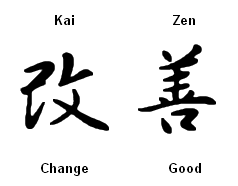I have been working with government now for about 15 years and somewhere in that period I became infected with Public Service Renewal disease. I call it that because that was I how I first learned to articulate it. But you could also call it Blueprint 2020, Destination 2020, Gov.20, Agile Government, Open Government and a host of other names.
One of the differences between government and other sectors of society is a preoccupation with obligation. The bureaucracy of government sees itself as obligated to achieve to higher standard. Mistakes are rarely tolerated and staff routinely strive to achieve the impossible; programs that will measurably achieve results with no risk. The goal is laudable. But consider for a moment how difficult it is to achieve societal goals that are actually measurable in a 4-8 year term. Society changes, but it does so in decades and in ways that economists struggle to understand, much less measure. The other side of the equation is risk and, as my mother used to say, “nothing ventured, nothing gained.” Venture implies risk, so if you are unwilling to risk being wrong for fear of unfavorable media attention, or just because you want to create the perfect solution, you are doomed to an eternity of cost overruns.
I started this post with the statement, “good enough, is”. Early in my career, (decades ago now), I was working for the engineering group in a telecommunications firm; I was writing the project charter for a five-year multi-million dollar product transformation. Working with one of the executives articulating project principles, he insisted that one of them should be “Good enough, is”. His rationale was that engineers were constantly almost finishing projects and then thinking of better, more elegant solutions and restarting the entire effort. This constant pursuit of the very best was getting in the way of actually shipping a product. It struck me then as interesting, and worthy of consideration in realms beyond engineering and telecommunications.
Since those days I have come across the sentiment expressed in a number of ways, from “perfection is the enemy of good,” to perfection is a moving target, to the minimum viable product. Whatever you call it, I think it is worth reflecting on the question of whether you and your team are pursuing excellence at the expense of good enough. In these days of extreme demands and minimal resources is it worth the price?

This is not to say I think the public service should be under-achievers. The idea of “Good enough, is” should always be countered by the concept of Kaizen or continuous improvement. The dynamic tension is a healthy thing.
 Thom believes in the power of the collective and is an award winning teacher, passionate learner and trusted advisor. A facilitator, change agent and architect, Thom helps clients tell their stories and navigate changing landscapes. He can be found online at www.strategyguy.com or @thomkearney.
Thom believes in the power of the collective and is an award winning teacher, passionate learner and trusted advisor. A facilitator, change agent and architect, Thom helps clients tell their stories and navigate changing landscapes. He can be found online at www.strategyguy.com or @thomkearney.

